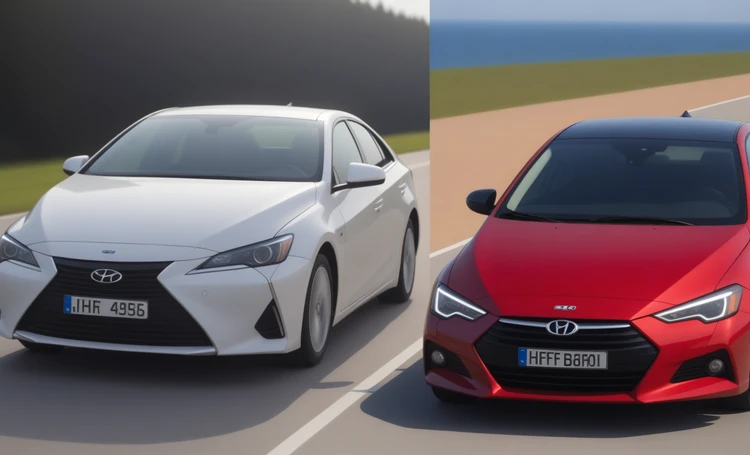🚗 Hybrid Cars: Optimizing Maintenance Costs
In today's automotive world, hybrid vehicles are becoming increasingly important. They offer a combination of the efficiency of traditional gasoline engines and the environmental friendliness of electric motors. However, the issue of the cost of servicing hybrids in official services remains relevant for many car owners. You can find out more about this by learning about the benefits of servicing hybrids in official services here.
🛠️Technical Features of Hybrids
Hybrid cars have unique technical characteristics that affect their maintenance:
- Design complexity: Hybrids combine a gasoline engine and an electric motor, which makes their design more complex than traditional cars.
- Specialized servicing: Servicing hybrid cars requires specialized equipment and qualified technicians.
- High Power Batteries: Hybrids use powerful batteries that require special care and periodic replacement.
💶 Cost of Service in Official Services
Official services offer high-quality service for hybrids, but the cost of such services may vary:
- Warranty Service: Most manufacturers provide a warranty on hybrid components, which can reduce service costs.
- Specialized Parts: Parts for hybrids are often more expensive than for traditional vehicles, which increases the overall cost of service.
- Qualification of service centers: Official dealers have the necessary knowledge and equipment to service hybrids, which may affect the price of services.
🌍 Regional Features
The cost of servicing hybrid vehicles can vary significantly from region to region:
- Tax incentives and subsidies: Some countries provide tax incentives and subsidies for owners of hybrids, which reduces the overall cost of operating them.
- Parts and Service Price Differences: Parts and service prices for hybrid vehicles may vary from region to region.
🌱 Environmental Aspect and Economic Benefit
Environmental safety and fuel savings are the key advantages of hybrid cars. Not only do they reduce carbon emissions, but they also allow owners to save on gas due to efficient use of electricity.
- Reduced emissions: Hybrids effectively reduce the amount of harmful emissions into the atmosphere.
- Fuel economy: Thanks to the combination of electric and gasoline engines, hybrids consume less fuel compared to traditional cars.
🔄 Battery Life Cycle
One of the important aspects of operating a hybrid vehicle is maintaining and replacing the battery. Battery life may vary and replacement may incur additional charges.
- Battery longevity: Modern hybrid batteries have a long service life, but replacement remains expensive.
- Recycling and disposal: Manufacturers offer recycling programs for used batteries, which contributes to environmental safety.
🌐 Global Trends and Outlook
Hybrid cars are constantly being improved, and their popularity is growing all over the world. With improved technology and lower component costs, hybrid vehicles are expected to become even more affordable and popular.
- Technological innovation: Improvements in hybrid engine technology promise greater efficiency and reliability.
- Market regulation: Government support and environmental regulations are driving demand for hybrid vehicles.
📊 Comparative Service Cost Analysis
Let's compare the cost of servicing hybrid cars with traditional gasoline and diesel cars:
Table: Service Cost (in US dollars)
| Car Type | Regular maintenance | Battery Replacement | General Operating Costs |
|---|---|---|---|
| Hybrid | $200 – $400 | $1,000 – $6,000 | $300 – $600 |
| Petrol | $100 – $300 | – | $250 – $500 |
| Diesel | $200 – $500 | – | $350 – $700 |
Note: Cost may vary depending on vehicle model and region.
🌟 Advantages of Hybrids for Drivers
Hybrid cars offer a number of advantages that make them attractive to modern drivers:
- Fuel Economy: Thanks to the combination of an electric motor and a gasoline engine, hybrids provide better fuel economy.
- Green: Reduced carbon emissions make hybrids a greener choice.
- Enhanced Comfort: Many hybrid models come with additional features to enhance driver and passenger comfort.
🌍 Impact of Environmental Trends on the Hybrid Market
Environmental trends and increased attention to sustainability are having a significant impact on the automotive industry:
- Growing Demand: More consumers are choosing hybrids as a way to reduce their environmental footprint.
- Policy Initiatives: Government initiatives to reduce CO2 emissions and support green technologies are helping to popularize hybrid vehicles.
🌐 Global Hybrid Market Trends and Prospects
There is a steady increase in interest in hybrid cars on the global market. This is due to both improved technology and growing awareness of the need for environmentally friendly transport.
- Technological Innovation: Manufacturers are actively working to improve the efficiency of hybrid systems, making these vehicles even more attractive to consumers.
- Policy support: Many countries are introducing incentives and subsidies to encourage the purchase of hybrid and electric vehicles, which also contributes to their adoption.
📈 The Future of Hybrid Technologies
The prospects for the development of hybrid technologies look promising. Hybrid vehicles are expected to become even more efficient, affordable and popular in the coming years.
- Improved Batteries: As battery technology advances, battery capacity increases and charging time decreases.
- Line Expansion: Manufacturers are expanding their lineup of hybrid models, offering more choice to consumers.
🔍 Conclusions and Recommendations
Hybrid cars offer an attractive combination of environmental friendliness, efficiency and comfort. They offer a solution for those looking to reduce their environmental footprint without sacrificing convenience and performance. Given global environmental trends and technological progress, hybrid vehicles will undoubtedly play a key role in the future of the automotive industry.

